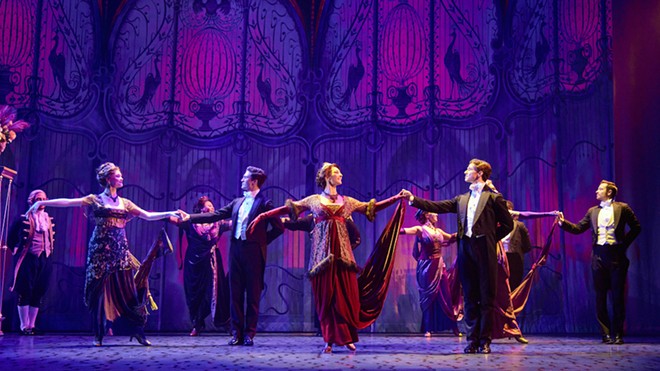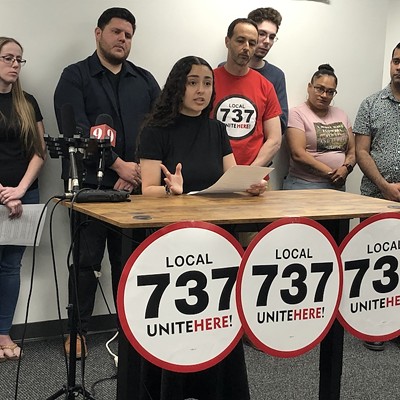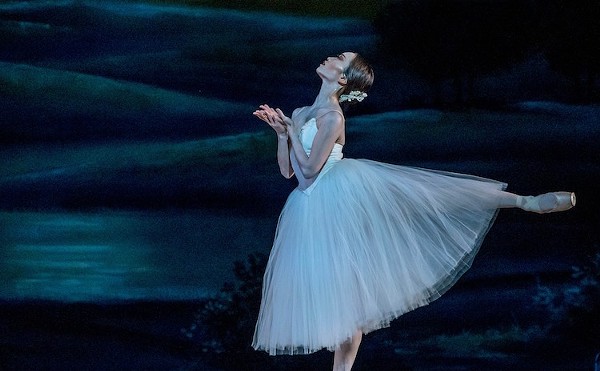Lerner & Loewe’s 1956 classic, My Fair Lady, has been considered the “perfect musical” since before I was born, and I’ve had a soft spot for it ever since working on a production of it in high school, so the acclaimed Lincoln Center revival currently playing at Orlando’s Dr. Phillip Center (through May 14) has been high on my list of eagerly anticipated shows in the current Broadway touring season.
But although this reunion reminded me of the many of the reasons why generations have loved this story, rewatching it with modern eyes only cemented my belief that you can’t go home to Covent Garden again.
Let’s start with what this My Fair Lady gets right, starting with the “luverly” renditions of its iconic score. Madeline Powell stars as Eliza Doolittle, the titular flower vendor with vile elocution, and her soaring vocal interpretation of “I Could Have Danced All Night” overflows with infectious, innocent ebullience. And if you only know her tightly wound, tyrannical tutor from Rex Harrison’s patter performance in the 1964 film, you’ll be pleasantly surprised to learn Professor Henry Higgins’ songs actually have tunes, which Jonathan Grunert capably carries with callow charm.
I also tip my top hat to opening night understudies Richard Coleman — high-stepping into the suit coat of Eliza’s ne’er-do-well dad for Michael Hegarty — and Diana Craig, replacing Becky Saunders, giving gravitas to Higgins’ mother. The whole ensemble is superbly supported by conductor David Andrews Rogers’ orchestra, which still sounds lushly organic despite being a third the size of Broadway’s pit. I’d love to attend an hour-long concert version of this production, with the cast simply delivering the marvelous music while dressed in Catherine Zuber’s luxurious period costumes and bathed in Donald Hoder’s painterly lighting.
Unfortunately, things start to fall apart as soon as the performers open their mouths to do anything other than sing. Between Powell’s cartoonish Cockney accent — accompanied by such extreme facial contortions that I feared Eliza had suffered a TBI — and the aggressively unbalanced amplification, the show’s opening scenes are almost entirely unintelligible to anyone who hasn’t already memorized the script. I suggest using the closed captioning app to translate the first act, at least until “The Rain in Spain.”
Christopher Gattelli’s choreography is joyfully old-school, with a few modern injections — such as a PG-rated drag burlesque during “Get Me to the Church on Time” that would surely dismay Gov. DeSantis. But director Bartlett Sher (who was also behind the exceptional recent To Kill a Mockingbird revival) botches the blocking with bizarrely unmotivated movement and an utter lack of urgency. The biggest contributor to the show’s glacial pace is Michael Yeargan’s set design, which blew the budget on a multi-story interior of Higgins’ study that still looks surprisingly shabby, with dimensionless bookshelves. Each time this behemoth lumbers on and off stage, the movement outlasts the scene change music, and it leaves behind a stage that’s mostly barren beside a comically wobbly doorway.
Sher’s biggest directorial failure — despite some claims to the contrary — is the half-hearted effort to make My Fair Lady’s rampant misogyny palatable (much less funny) for today’s audiences. Sending some silent suffragettes through the background of one scene doesn’t make this a feminist statement, and Grunert’s dryly devastating deluge of gender- and class-based degradations isn’t undercut by comedy or the other characters often enough to feel like anything other than applauded abuse. If there was even a hint of romantic undercurrent to their sparring, it might be forgivable, but as plucky and charming as Powell’s Eliza is, she lacks any onstage spark with either Higgins or her goofy other suitor, Freddy (Nathan Haltiwanger, who sings a sweetly stellar “Street Where You Live”).
Finally, I have to address the much-discussed “new” ending, which neither directly addresses the plot’s problematic denouement, nor makes a lick of damn sense in terms of spatial geography. Perhaps the finale’s fourth-wall violation felt bold in Lincoln Center’s arena stage, but on the Dr. Philips proscenium, it was merely perplexingly awkward.
My modest suggestion for the next revival: End the show with a pantomime dream ballet of Eliza killing Higgins, confiscating his wealth, and starting a new life in America. Now wouldn’t that be loverly?
Subscribe to Orlando Weekly newsletters.
Follow us: Google News | NewsBreak | Reddit | Instagram | Facebook | Twitter

















